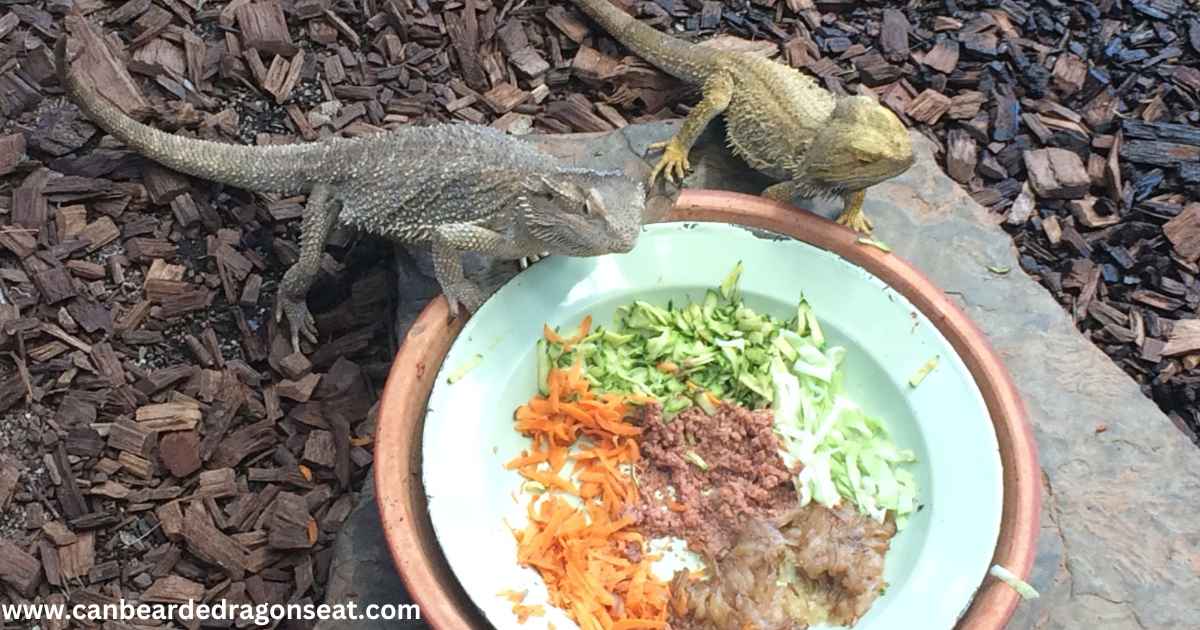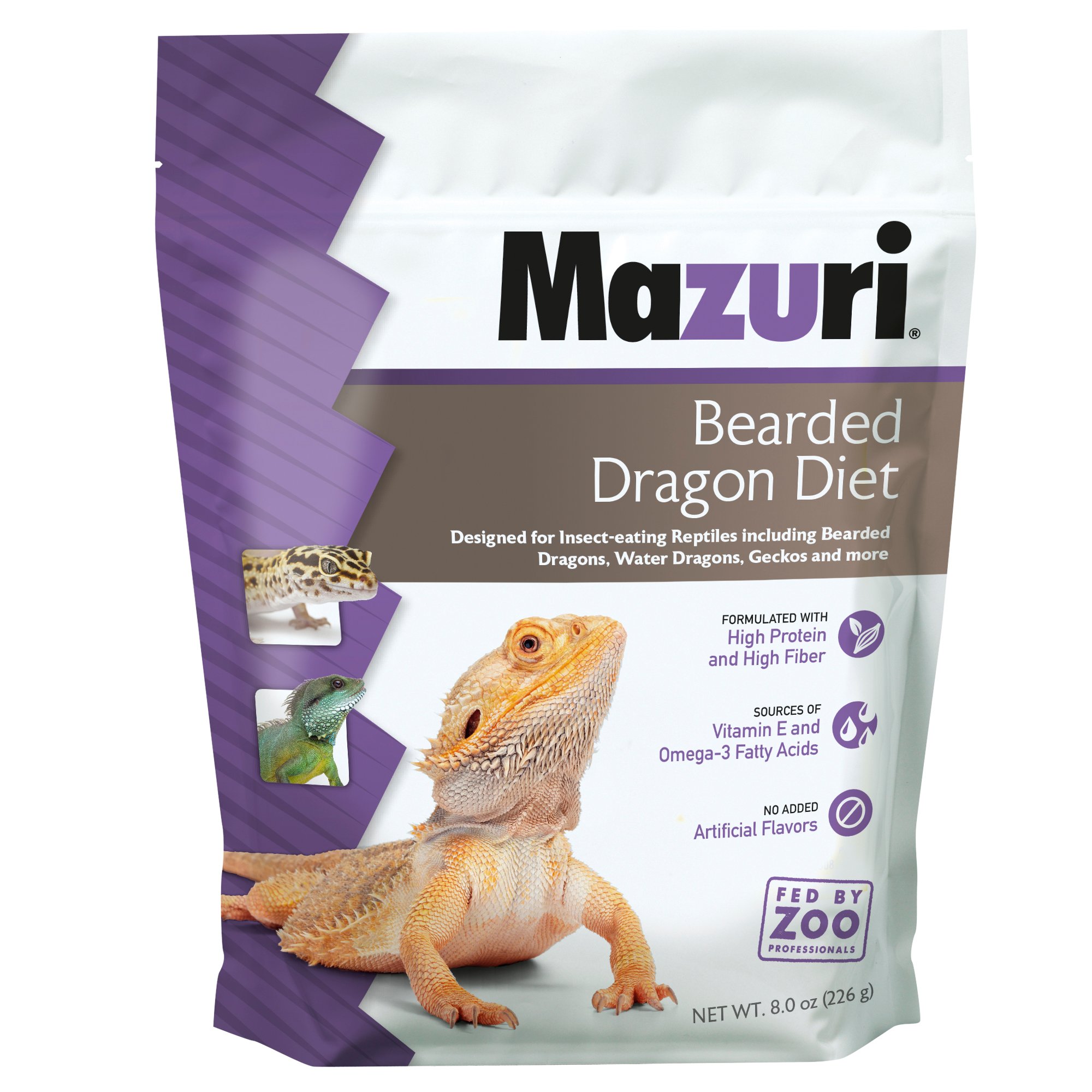
Best 7 foods for Bearded Dragons MyPetCareJoy
Protein Sources of protein for beardies Crickets Dubia Roaches Mealworms Superworms Black Soldier Fly Larvae (Phoenix Worms) How often should you feed protein Vegetables Best vegetable for bearded dragons Vegetables to avoid in bearded dragon diet Fruits Best fruits for bearded dragon diet Can bearded dragons eat flowers

This guide covers the best fruits, vegetables, and salads for bearded dragons to keep them happy
This practice makes the insects much easier to catch, which can be very helpful for clumsy baby beardies. 2. Control the portions. Also important when feeding your bearded dragon their insects is to limit the portions of insects. Only feed as much as your bearded dragon can eat in 5-10 minutes.

Bearded Dragons Diet Beardies Guides
From crickets to squash, peaches, and even dandelions, bearded dragons have an extensive diet as omnivores. Because they can eat so many different foods, most owners find feeding their bearded dragons to be a lot of fun! Above all else, the number one question I get asked by new and prospective bearded dragon owners is…

Choosing Fruits and Vegetables For A Healthy Bearded Dragon Diet
Juvenile bearded dragons (4-7 months old) Will need to eat 2-3 times a day - morning, late afternoon/early evening. Make sure your bearded dragon eats feeder bugs 2 times a day. Also, have a bowl with some greens and start offering some too. Subadult bearded dragons (7-12 months old) 1 time per day.

Bearded Dragon Food Best Practices The Bug Shed
Introduction to Feeding Your Dragon Bearded dragons are omnivores and can eat a variety of things. Normally your bearded dragon's diet will consist of vegetables, insects, and non-citrus fruit. When you give your beardie insects you will need to make sure that the insect isn't too big for your dragon to eat.

Fluker's Bearded Dragon Diet for Juveniles, 4.4 Oz
Bearded dragons are omnivores. So they can eat a wide variety of both protein-rich insects and healthy greens. In captivity, the safest staple that bearded dragons of any age can eat on daily basis are: Dubia roaches or crickets for protein. Collard greens, dandelion greens, escarole, endive or alfalfa for leafy green vegetables.

baby bearded dragon diet chart Frieda Mosby
Diet and How Often to Feed When Should I Feed? How Much to Feed How to Prepare Foods for Feeding Bearded Dragon Diet and Link to Disease Antinutrients in Foods Foods Dangerous for Bearded Dragons Do Bearded Dragons Chew Their Food? What Do Bearded Dragons Eat in the Wild? More Articles References and Further Reading Bearded Dragon Safe Food Lists

Ensuring A Long And Healthy Life For Your Pet Bearded Dragon BioBubblePets
Healthy adult bearded dragons should eat around 10 crickets per day OR 20 crickets every other day. How Many Mealworms to Feed a Bearded Dragon Although many vets or inexperienced owners will advocate for mealworms… they're actually NOT that great for your beardie.
Bearded Dragon Care Bearded Dragon Diet
Complete Food & Diet Guide Being a pet parent to a bearded dragon means knowing exactly what they need nutritionally in their diet so they can stay full, happy and healthy. The type of food you feed your bearded dragon is important, as well as how often you feed them, the reptile supplies you use to feed them and how you store their food.

bearded dragon food chart Google Search Bearded dragon food, Bearded dragon care, Bearded
The bearded dragon diet should be rich in vitamins, minerals, and other essential nutrients. One of the most critical nutrients is calcium, which is vital for bone health. A lack of calcium can lead to metabolic bone disease, a common and severe condition in captive bearded dragons.

Bearded Dragon Diet And Nutrition Pet Care Advisors
Bearded dragons are omnivores, meaning that they eat both plants and animals. Generally when bearded dragons are very young, they eat 80% bugs and 20% plants, however sometimes people have trouble getting their dragons to eat any vegetables at all when they are young. Adult bearded dragons are nearly the exact opposite and their diet will.

Pin on Bearded Dragon
A complete bearded dragon diet plan consists of vegetables, fruits, and insects. To meet their nutritional needs, these reptiles should have a diverse and balanced diet. Proper nutrition is essential for the health and wellbeing of a bearded dragon. As a responsible pet owner, it is important to understand their dietary requirements and provide.

Bearded Dragon Diet By Age Feeding Through All 3 Life Stages The Bug Shed
Baby & Juvenile Bearded Dragons Diet. At least everyone agrees about the ideal diet for diet for baby and juvenile bearded dragons. It should include 80% of insect foods, and the remaining 20% should be made up of plant matter - leafy greens and a bit of fruit. Since they have a rapid growth rate, baby and juvenile beardies eat a lot.

Complete Diet For Bearded Dragons YouTube
Feed your Dragon our premium Dubia Roaches and have peace of mind knowing that you're providing a nutrient packed meal that they'll love to eat — ensuring a Happy, Healthy and long Life! Buy Dubia Roaches We create resources that help you care for your bearded dragons, other reptiles and exotic pets.

Bearded Dragon Food Central Bearded Dragons
Baby bearded dragons (hatchling to 5 months old) should be fed approximately 60% - 80% insects and 20% - 40% plant matter Juvenile bearded dragons (5 months old to 18 months old) should be fed approximately 50% insect prey and 50% plant matter

Mazuri Bearded Dragon Diet Petco
In the wild, they feed on a variety of insects, worms, spiders, small rodents, lizards, birds and eggs, as well as leaves, flowers, fruits and seeds. In captivity, they need a balanced diet of insects, vegetables and fruits to stay healthy and happy. Providing a variety of foods is important for your bearded dragon's nutrition and well-being.